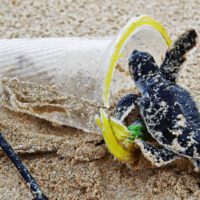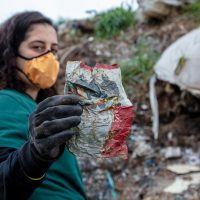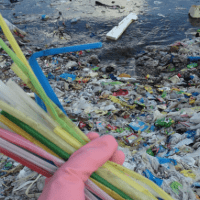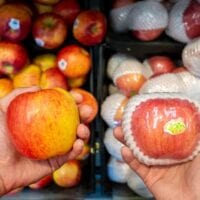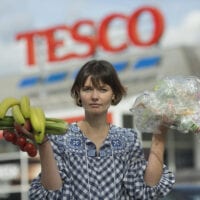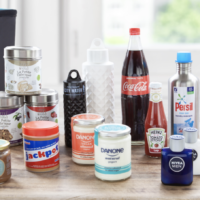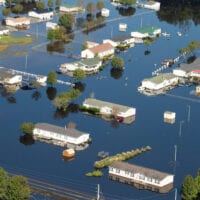The problem with microplastics
Bottles, pots and food trays are immediately obvious, but other types of plastic pollution can be harder to spot. When plastic breaks down it doesn’t disappear, it gets smaller, creating tiny particles called microplastics. Even clothes made from artificial materials shed microplastic fibres when they’re washed. Microbeads, another type of microplastic, are sometimes added to products such as cosmetics and toothpaste. Impossible to filter from waste water, they end up in our oceans.
Bits of plastic have been found in every corner of the world, including the deepest ocean trenches and on uninhabited islands. Our own researchers have found plastic pollution in Antarctica. Turtles, dolphins and seabirds can become entangled or injured by large pieces of plastic. It can even be mistaken for food. Microplastics are just as devastating. Swallowed by everything from microscopic zooplankton to giant blue whales, they enter the food chain and carry harmful toxins. Microplastics have even been found in human poo.
How can we reduce plastic pollution?
We’re just beginning to realise the scale of the problem, but fortunately the answer is simple: make and use less plastic. People around the world have come together to end plastic pollution, and it’s working. Greenpeace supporters have challenged Coca Cola to use less plastic, while countries like the UK have banned certain microplastics. Supermarkets are starting to talk about what they need to do.
Of course, using less plastic isn’t easy for everyone. For some disabled people, for example, single-use plastic is essential to their health or quality of life. Plastic products should still be available for those who need them. But we need to go much further to end the flow of plastics into the ocean. Food and drink companies in particular need to slash the amount of unnecessary plastic packaging they use.
Find out how your supermarket ranked in our plastic league table, and get tips on reducing plastic in your own life.

